
Fleeing from war and starting a business: Stories of internally displaced persons who founded their businesses with EU support – part II
As stated in Part 1 of Article 25 of the Declaration: “Everyone has the right to a standard of living adequate for the health and well-being of himself and of his family, including food, clothing, housing and medical care and necessary social services, and the right to security in the event of unemployment, sickness, disability, widowhood, old age or other lack of livelihood in circumstances beyond his control.”
Ukraine’s internally displaced persons (IDPs) have faced various challenges after moving from the country’s conflict zones: from struggles to find decent housing, pay for food and clothing, to difficulties finding decent employment to provide for the family.
This article describes some of the difficulties these people have encountered, where they found the strength and inspiration for their own businesses, and how the European Union has helped them. We spoke with successful entrepreneurs who were able to move from occupied territories and start their own business with the EU’s support.
Volodymyr and Tetyana Ziangirov opened a shop selling household detergents in Myrnohrad
Volodymyr was born and raised in Myrnohrad, Donetsk Region, and his wife Tetyana is from Donetsk. He is a coal miner with 30 years of experience, and she used to work as a junior scientist at the Institute of Applied Mathematics and Mechanics before the hostilities started.
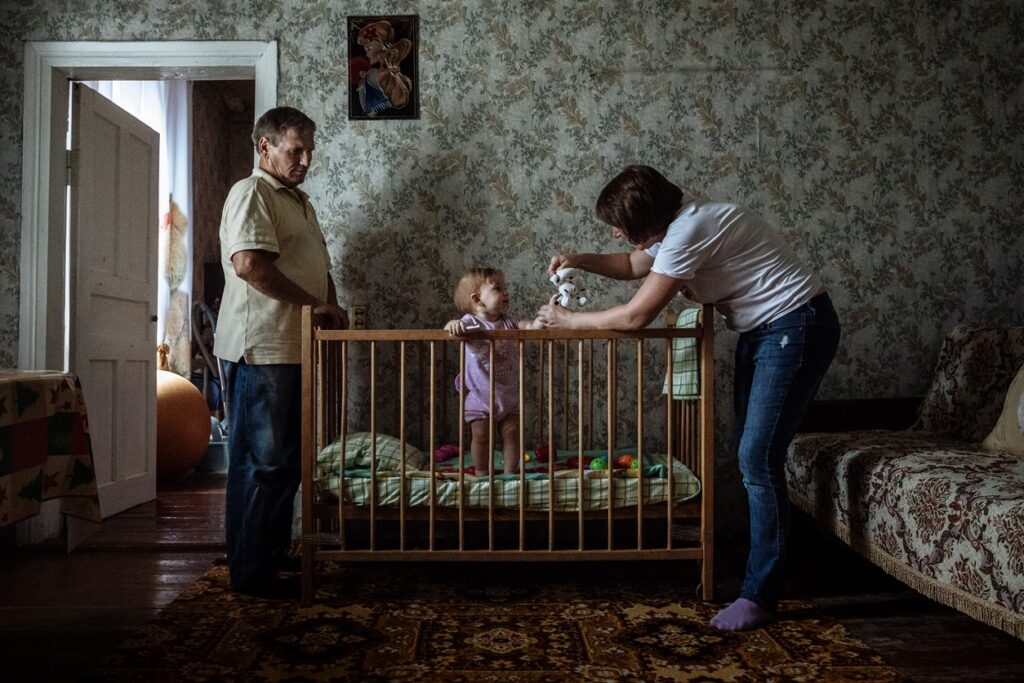 Tetyana and Volodymyr with their daughter (Photo: IOM/Muse Mohammed)
Tetyana and Volodymyr with their daughter (Photo: IOM/Muse Mohammed)
They got married on 26 April 2014. On 12 June, Tetyana gave birth to a girl named Mariyka and on 15 July they escaped from Donetsk to Myrnohrad.
The family lives in a house on the outskirts of Myrnohrad, so after the move, Tetyana had to take a taxi to travel home late at night. Since they had financial problems, the couple decided to open their own business.
At first, they opened an online shop; they were going to import nappies from Poland to sell in Ukraine but got scammed and were left not only without a penny, but also in debt.
“I was terribly depressed… Then my husband retired and I received social benefits and we invested all the money into goods. We ventured to rent a building and open our own shop,” Tetyana explains.
She learned online that the EU offered support. “With the €650 that we received from the EU-financed project implemented by the IOM in Ukraine, I bought scanners and stands for displaying goods; later, Volodymyr also won a grant in the amount of 65,000 hryvnyas (€2,000). We again invested the money into goods.”
The couple tightened their belts, but this eventually led to success. At that time, five displaced persons worked at their shop.
Later, the couple opened another shop, but due to high rent prices they had to close it. However, the experience of opening shops motivated them to move forward. Tetyana tells us she dreams of restoring the local run-down cinema and create an entertainment centre there for families:
“The problem in our small towns is that there are a lot of bars, but there are no places for families with children. I hope that we can find grantors who will help us implement this ‘crazy idea’.”
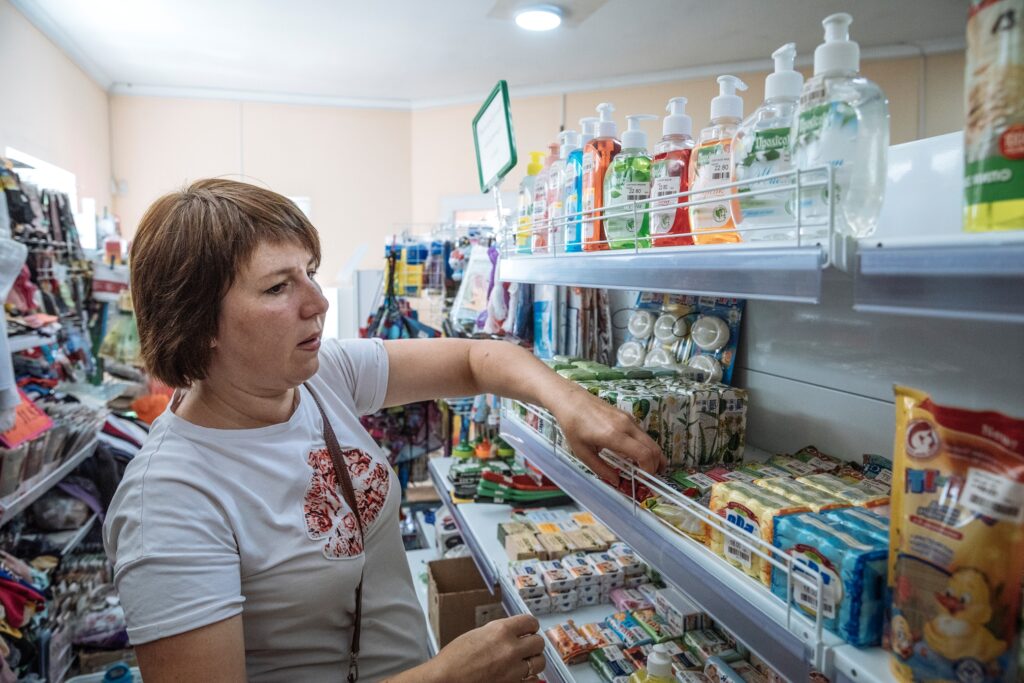 Tetyana Ziangirov in their family-owned shop (Photo: IOM/Muse Mohammed)
Tetyana Ziangirov in their family-owned shop (Photo: IOM/Muse Mohammed)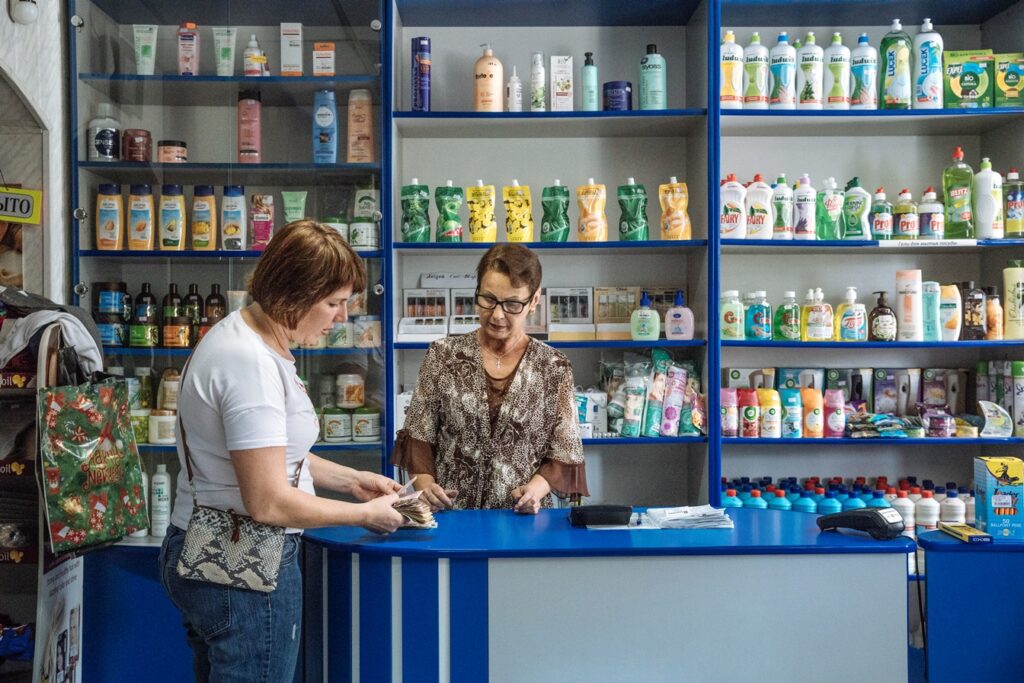 (Photo: IOM/Muse Mohammed)
(Photo: IOM/Muse Mohammed)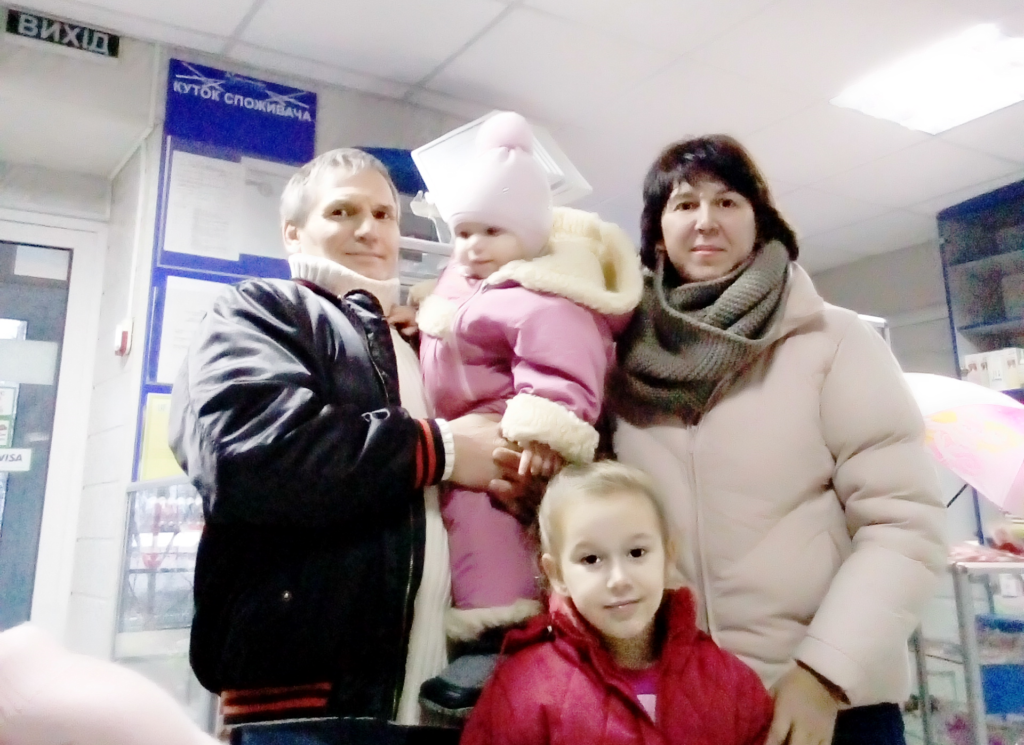 Family photo. November 2018
Family photo. November 2018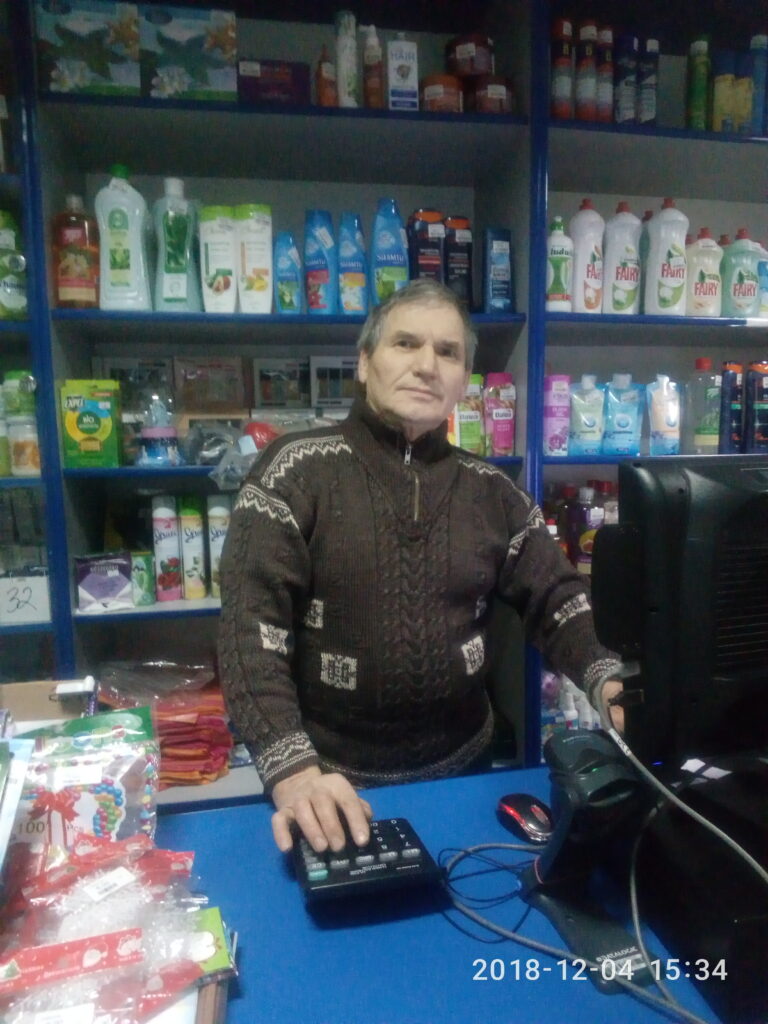 Volodymyr inside their family-owned shop. December 2018
Volodymyr inside their family-owned shop. December 2018
Activist Mariya managed not only to organise her own life after her move, but also to unite other displaced persons and stir the local community into action.
Maria Klopovska was born and raised in Donetsk. She worked at a bank and managed her own business. On 26 May 2014, hostilities began in Donetsk, so Maria moved on 5 June.
As Maria’s mother was the head of the association for people with special needs in Donetsk, she had been involved in public activity since she was a child. According to Maria, they managed to introduce several innovative programmes for people with special needs in the city, as well as taxi services for disabled people: “If not for war, we would have opened a rehabilitation centre,” the woman says, her sadness clear to see.
At first, Maria and her mother left Donetsk for Kuyalnyk (Odesa Region). The two women helped people with special needs to move there. Maria stayed there for three months.
“After that, it became clear that the hostilities would not end quickly, therefore we had to decide what to do next,” she recalls. Maria and her husband decided to move to Kupyansk (Kharkiv Region).
At that time, there were over 4,000 displaced persons in Kupyansk. “People were left alone [to deal] with their misery. There was a clear understanding that the responsibility for our lives was in our hands.”
Maria and a number of other activists united through the organisation “Kupyansk. We are near you”. In time, the team began to grow and draw attention to the problems of the city’s displaced people.
The local authorities provided a room to meet, but there was nothing there. “We started looking not only for programmes that allotted grants of a humanitarian nature, providing an opportunity to eat a few meals or buy products, but also programmes that focused on development, so that we would feel needed by society and solve at least some problems for the people,” the activist says.
Thanks to joint efforts, the activists managed to obtain a grant from a project financed by the EU and implemented by the International Organization for Migration (IOM) in Ukraine.
“We put together a project proposal and the budget, and the IOM provided almost everything that we asked for. The allotted budget was 140,000 hryvnyas (approximately €4,400) which the IOM gave to us in the form of necessary equipment, computers, sports equipment and stationery, which is a good thing,” says Maria.
Since then, the activists have held dozens of events, such as training sessions, masterclasses and flash mobs. They have also provided psychological help to people and planted a so-called “alley of peace”.
“It is nice to realise that we are doing something good not only for ourselves, but for the locals as well. You know, some people have an impression that displaced persons are always asking for something, they always need something. We are not perceived in this way, because in the four years we have been here we have put together several project proposals that have made the life of the entire community better on the whole. So we have turned from ‘those who ask’ into ‘those who give’.”
***
The International Organization for Migration (IOM) – the United Nations’ Migration Agency – has been implementing the EU-funded project “Facilitation of the rehabilitation and sustainable resolution of the problems of internally displaced persons and victims of conflict in Ukraine” since 3 January 2017.
This two-year project aims to help internally displaced persons and members of host communities. The project includes support for social cohesion measures, business training and the provision of grants to promote self-employment and micro-entrepreneurship. It also helps NGOs and volunteer associations that work with internally displaced persons and promotes the development of an improved monitoring system for the integration of displaced persons.
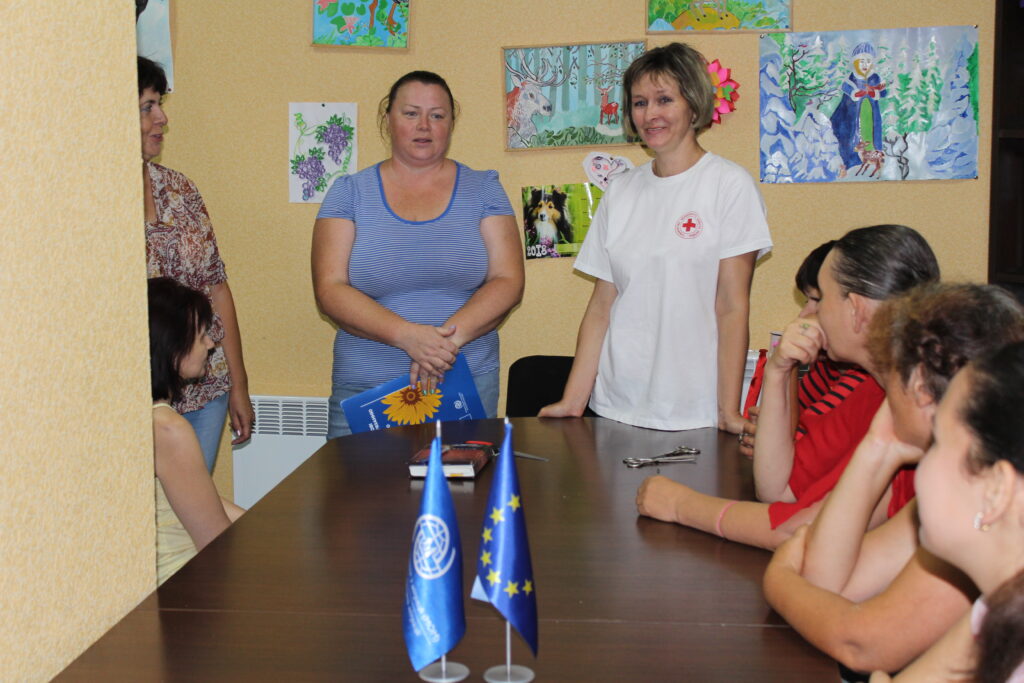 Mariya Klopovska conducts information session in Kupyansk for people with disabilities (September, 2018 року)
Mariya Klopovska conducts information session in Kupyansk for people with disabilities (September, 2018 року) Mariya Klopovska discusses plans for 2018 with activists of organisation “Kupyansk. We are near you”
Mariya Klopovska discusses plans for 2018 with activists of organisation “Kupyansk. We are near you” Mariya Klopovska takes part in the fundraising training seminar in Kupyansk (October, 2018)
Mariya Klopovska takes part in the fundraising training seminar in Kupyansk (October, 2018)
Author: Uliana Bukatiuk
Article published by espreso.tv in two parts: part 1 (Ukrainian and Russian), part 2 (Ukrainian and Russian)
MOST READ
SEE ALSO

‘The Kremlin has entered the chat’: how to protect your personal data on Telegram and avoid the bait of propaganda

No, time is not on Russia‘s side
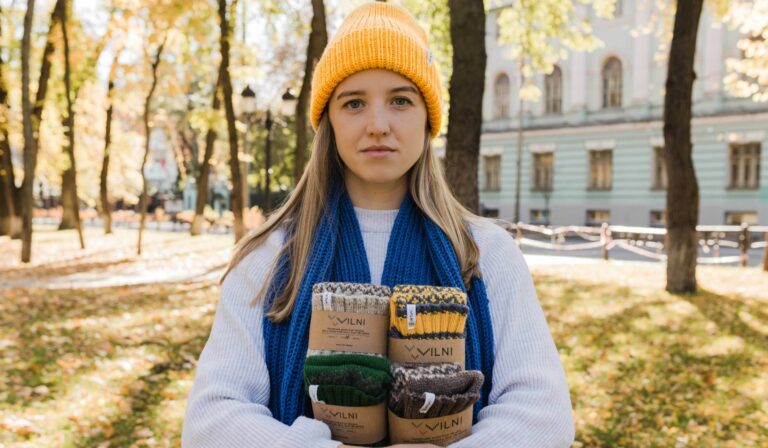
Socks for Peace: how the Vilni project is supporting internally displaced women in Ukraine
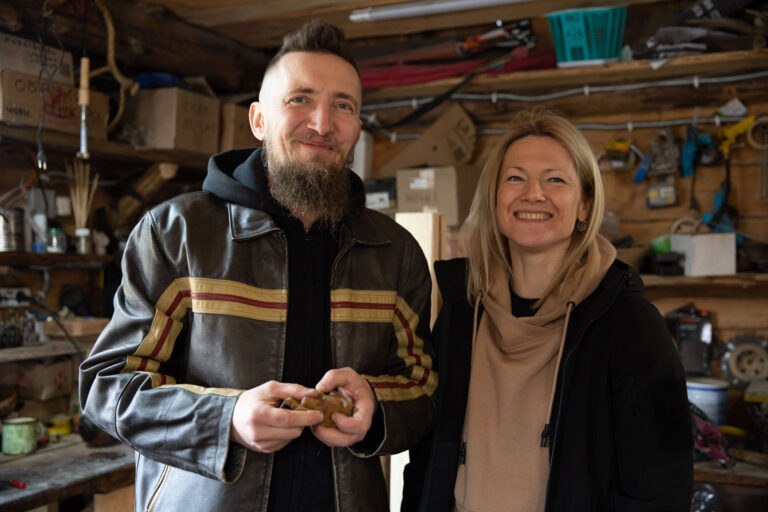
Celebrating traditional Ukrainian cultural identity in Rivne
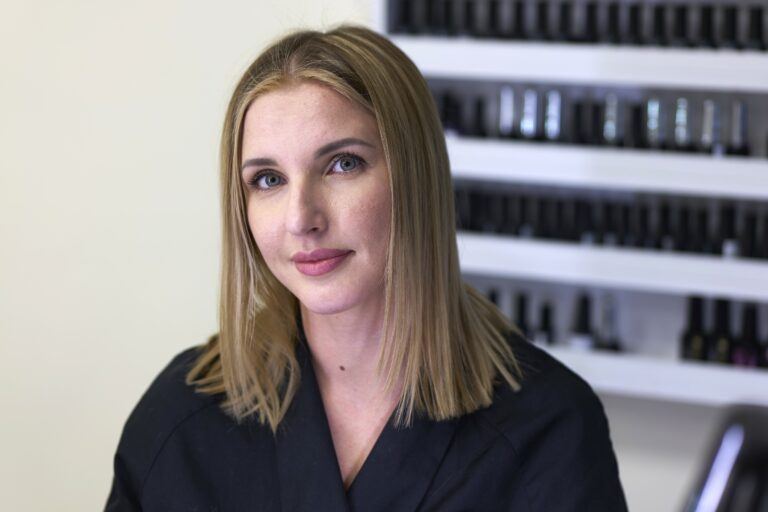
Natalia wanted her child to escape the war: how a single mother set up a successful business in Lithuania
More campaign pages:
Interested in the latest news and opportunities?
This website is managed by the EU-funded Regional Communication Programme for the Eastern Neighbourhood ('EU NEIGHBOURS east’), which complements and supports the communication of the Delegations of the European Union in the Eastern partner countries, and works under the guidance of the European Commission’s Directorate-General for Neighbourhood Policy and Enlargement Negotiations, and the European External Action Service. EU NEIGHBOURS east is implemented by a GOPA PACE-led consortium. It is part of the larger Neighbourhood Communication Programme (2020-2024) for the EU's Eastern and Southern Neighbourhood, which also includes 'EU NEIGHBOURS south’ project that runs the EU Neighbours portal.

The information on this site is subject to a Disclaimer and Protection of personal data. © European Union,







